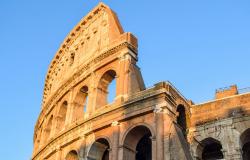What Rome, ancient and modern, can tell us about Europe’s governance challenges

Cornelius Adebahr argues that Rome holds lessons for those worried by Europe's over centralising tendencies.
67 years ago today, on 25 March 1957, Europe’s founding treaty was signed in Rome. Officially called the Treaty establishing the European Economic Community but conveniently called the Rome Treaty, it became the legal basis for a political project that would develop into today’s European Union.
This accord is just one example of how questions of European governance overlap with the Eternal City. Another goes back to antiquity and how the demise of the Roman Empire laid the grounds for the development of a polycentric and competitive rather than unitary and statist continent (nothing to do with a recent TikTok meme). The other is about this young century’s (first) financial crisis which has had long-lasting repercussions especially in the country governed today from the area of the Campus Martius of old (gotcha).
First, the Rome Treaty, as revised and updated in Maastricht, Amsterdam, Nice, and, most lately, in Lisbon, may be as exciting for Europhiles as it is excruciating for law students, but dull for nearly everyone else. Yet, it is also crucial for anything going on in the EU today. Because the latter, with all its political squabbles, is based on the (rule of) law – and, in turn, if the latter erodes, the entire edifice crumbles.
Which means that EU member states must recognize the supremacy of EU law. That is not just a nod to the well-known deviationist cases of Hungary and, more recently, Slovakia (which took Poland’s place after the latter returned to the fold). It is also a warning about the legal practice of Germany’s Constitutional Court, whose rulings––while judiciously argued––risk threatening the integrity of EU law, let alone provide fodder for the go-it-alone nationalists in other countries.
At the same time, observing the rule of law is a requirement at global level, at least for those claiming to uphold the rules-based world order. Which means to not just respect but sustain public international and humanitarian law, whether on international jurisdiction and conflict arbitration (South Africa’s case at the International Court of Justice comes to mind) or on human rights and the Geneva Convention for refugees and asylum seekers (the Mediterranean no longer being the mare nostrum of Roman times).
Political expedience and public support are legitimate concerns in a democracy, and any political decision must weigh numerous – often contradictory – interests, not least in a union of 27 member states. However, whether a particular course of action supports or erodes the (European or international) legal basis on which the EU is founded and from which it prospers, should be a key consideration. Just like with the long-term effects of climate change, there are ‘tipping points’ beyond which the established and cherished legal order may not be preservable anymore––except that these junctures cannot be scientifically calculated.
Whatever the exact tipping point was for the Roman Empire, secondly, its eventual demise has been put down to the year 476––at least, for its Western part. (Eastern Rome lived on as the Byzantine Empire until the fall of Constantinople to the Ottomans in 1493.) Interestingly, as Princeton historian Walter Scheidel argues in his book “Escape from Rome", the empire’s fall paved Europe’s road to prosperity, as it allowed a polycentric and divided Europe to emerge, in which various states, big or small, could thrive. Moreover, competition for power emerged also within these polities, such as between the political ruler, powerful businesspeople organized in guilds, and the clergy.
This is, in fact, a very different trajectory from the one of the Chinese Empires, Rome’s great comparator. The Middle Kingdom remained imperial and centralized for far over two millennia, during which it dominated––together with India––much of the world’s economic output. To varying degrees these inherent features, Scheidel argues, also apply to the empires in other Old-World regions such as South Asia, West Asia, and North Africa. “What have the Romans ever done for us”, he asks in a cheeky movie reference before answering himself: They went away, allowing a new order to develop.
The key point here is not only about understanding history per se, but about how we understand it––especially in a context of geopolitical rivalry and global disruptions. Given its history, Europe cannot compete with the United States or China by becoming ‘more like them’. After one and a half millennia, there can be no return to the greatness of the Roman Empire––nor to Charlemagne’s or Napoleon’s, for that matter. Instead, Europe needs to develop a vision of community not built on might but on the rule of law.
Obviously, what any such body politic needs are sound policies, which leads to the third point of the financial crisis of 2008 and the following years. While the great recession emerged in the United States, it hit Europe and the Eurozone particularly hard, especially chronically indebted and anaemically growing Italy. Its GDP per capita still ranges below 2007 levels, its labour productivity has stagnated, and its government debt has risen––to 147 percent of GDP in2022, the second highest in the EU.
Ironically enough, there were even references to a previous financial meltdown in Ancient Rome in 33 AD, producing newspaper headlines like „Banks fiddled while Rome burned“. In both cases, popular policies––about land use among wealthy Roman citizens then and homeownership in the United States now––went awry, with severe consequences for large parts of the population.
Hurtful beyond the hard numbers was the fact that, during the financial and public debt crisis, EU unity threatened to become undone, as member states were divided into debtors and creditors. It was therefore crucial that, when the Covid-19 pandemic again hit Italy particularly hard, a jointly funded scheme was set up to finance the continent’s recovery. Even though it did not quite mark a “Hamiltonian moment” for the continent, as it does not solve the Eurozone’s underlying structural deficiencies.
Long story short, whether looking at the first, the twentieth, or the twenty-first century, Rome holds a lesson or two for how Europe can and should be governed. To fulfil the promise of “ever-closer union among the peoples of Europe”, a firm legal foundation is needed that allows for healthy and fruitful cooperation among states to develop sound policies in the interest of their citizens––nothing more, nothing less.
Photo by khalid ait sayh


